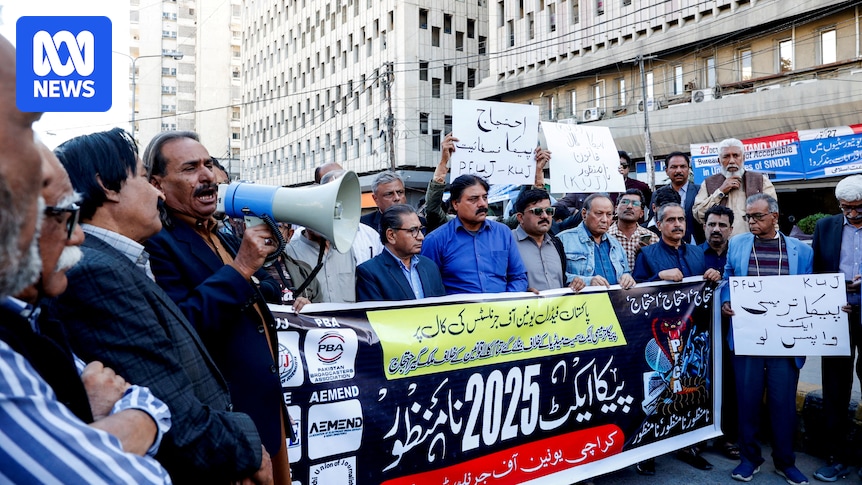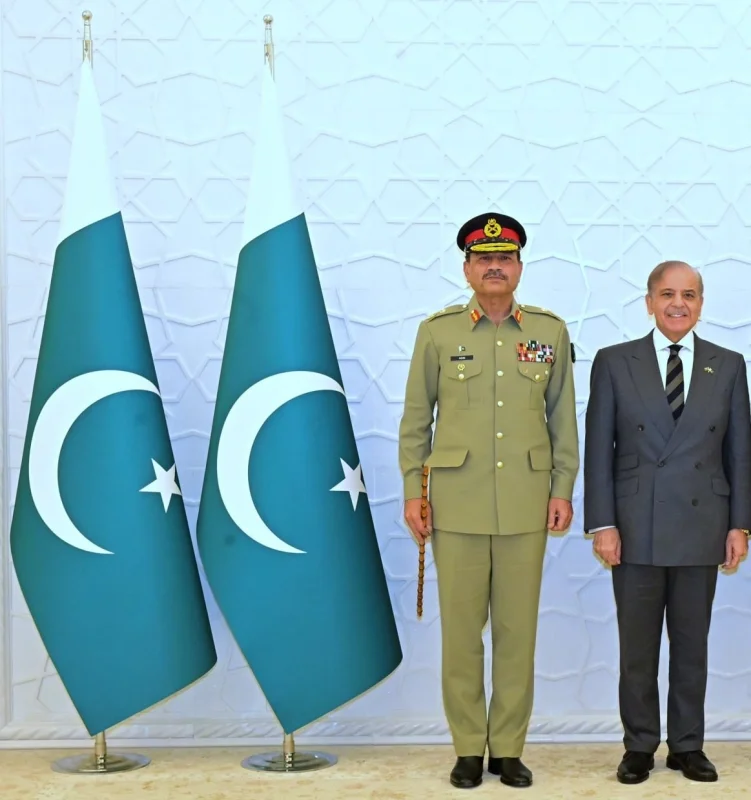- Fresh talks on Gaza stabilisation force to focus on mandate as Pakistan maintains caution Dawn
- Pakistan Says It Will Not Disarm Hamas, Open to Peacekeeping Role in Gaza Palestine Chronicle
- Pakistan in Trump’s Gaza Plan: Amb. Ausaf Sayeed…
Category: 1. Pakistan
-
Fresh talks on Gaza stabilisation force to focus on mandate as Pakistan maintains caution – Dawn
-
Fresh talks on Gaza stabilisation force to focus on mandate as Pakistan maintains caution – Dawn
- Fresh talks on Gaza stabilisation force to focus on mandate as Pakistan maintains caution Dawn
- Pakistan in Trump’s Gaza Plan: Amb. Ausaf Sayeed Explains India’s World Magazine
- Pakistan opposes Hamas disarmament clause, sets conditions to join…
Continue Reading
-
DPM departs for Beijing to co-chair Pak–China Strategic Dialogue – RADIO PAKISTAN
- DPM departs for Beijing to co-chair Pak–China Strategic Dialogue RADIO PAKISTAN
- Regard Taiwan as an inalienable part of China, Pakistan reiterates Dawn
- One-China policy: Islamabad reaffirms support for Beijing on Taiwan issue Geo News
- DPM Ishaq…
Continue Reading
-
Dar heads to Beijing to co-chair strategic dialogue with China – Dawn
- Dar heads to Beijing to co-chair strategic dialogue with China Dawn
- Islamabad and Beijing open strategic dialogue as Pakistan’s top diplomat begins China visit TRT World
- One-China policy: Islamabad reaffirms support for Beijing on Taiwan issue
Continue Reading
-
Pak-US ties improved in 2025, positive results expected in 2026: Rizwan – RADIO PAKISTAN
- Pak-US ties improved in 2025, positive results expected in 2026: Rizwan RADIO PAKISTAN
- From sick man to regional security provider: Pakistan’s year of geopolitical openings Dawn
- After defeating India in May war, Pakistan commands new global…
Continue Reading
-
DPM, Saudi FM discuss latest regional situation – RADIO PAKISTAN
- DPM, Saudi FM discuss latest regional situation RADIO PAKISTAN
- We envision a promising future for Pakistan and Saudi Arabia, says PM Shehbaz after phone call with MBS Dawn
- PM Shehbaz, MBS reaffirm strong bilateral ties The Express Tribune
- Saudi…
Continue Reading
-
Speed Breeding facility for wheat, pulses inaugurated – RADIO PAKISTAN
- Speed Breeding facility for wheat, pulses inaugurated RADIO PAKISTAN
- Federal Minister for National Food Security and Research, Rana Tanveer Hussain, inaugurating the Speed Breeding and Intelligent IoT-Based Smart Glasshouse facilities at the…
Continue Reading
-

Pakistan court sentences journalists to life in prison over links to 2023 protests after Imran Khan’s arrest
A Pakistani anti-terrorism court sentenced eight journalists and social media commentators to life imprisonment in absentia after convicting them of terrorism-related offences linked to online activity in support of jailed former prime minister…
Continue Reading
-
The request could not be satisfied
ERROR: The request could not be satisfied
The request could not be satisfied.
Request blocked.
We can’t connect to the server for this app or website at this time. There might be too much traffic or a configuration error. Try again later, or…Continue Reading
-

Pakistan army again overrides civilian govt in pursuing agenda
Ongoing actions on Imran Khan and his Pakistan Tehreek‑e‑Insaaf (PTI) party may formally be seen as being initiated by the civilian govt, but the sustained operation points to a well-crafted design and execution; a campaign of legal,…
Continue Reading